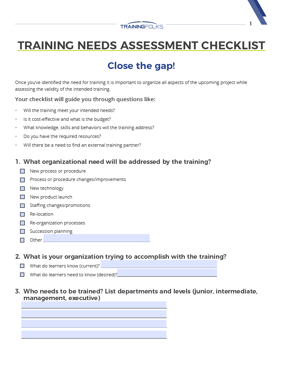How to Incorporate Empathy in Sales
It is often said that empathy is one of the necessary tools for a salesperson to succeed in making sales. Empathy, the ability to feel what someone else feels, is necessary for a salesperson to understand clients and their needs.
Unlike sympathy, which is the ability to agree with what someone else is feeling, empathy can help a salesperson to connect with clients from their perspectives. This helps the salesperson to understand the client’s feedback about a product or service being offered.

How Does Empathy Work While Selling Products or Services?
Many of know the feeling of being ‘sold’ to. It can be transparent, and cold. It's often easy for us as the buyer to pick up on the salesperson’s thoughts and feelings, or how much they really care about helping us, vs making a sale. When selling products or services to different clients, a salesperson might have a set strategy for approaching each individual client. This could involve establishing rapport with a client, making the sales pitch, performing a demonstration, answering questions, and finally closing out the sales pitch.
However, each client is different and might have varying needs during the interaction with the salesperson. For example, a salesperson might be pitching a product using a lot of technical jargon that is difficult for the client to understand. If the salesperson continues with the rehearsed pitch without considering the feedback coming from the client, this could affect the sale since the client’s needs are not being met.
Rather than following a standard conventional format when interacting with clients, a salesperson employs empathy in client interactions by having the conversation revolve around the client’s needs in a fluid way. For example, checking in with the client to make sure that the presentation is easy to follow allows the client to feel valued by the salesperson. It also communicates to the client that the salesperson is not simply trying to make a sale but is instead trying to understand the client’s needs.
Training a Salesperson to Have More Empathy While Making Sales
While empathy may be dependent on personality and traits unique to individuals, salespersons can be taught and trained to have more empathy while dealing with clients. It mostly comes down to the salespersons understanding their clients and caring for the clients’ needs.
However, empathy training remains a key component to sales enablement. This type of training can also be delivered through eLearning, or vILT (Virtual Instructor Led Training) to ensure an efficient delivery and good use of a sales persons time. Here are some of the ways you can design a training module on leveraging empathy while making sales.
What Can You Include in This Training?
Successful training on empathy may take a non-traditional direction that teaches a salesperson to approach the sale while thinking from the client’s perspective. The goal of the training would be for the salesperson to keep the clients’ interests in mind during the sale.
By engaging salespersons in training situations through which they can gradually develop empathy, the salespersons are more likely to get a better sense of how to leverage empathy while making a sale.
A vILT (Virtual Instructor Led Training) or eLearning module on empathy would also be helpful if it teaches salespersons adaptability during a sale. It is important for salespersons to be able to read the environment of the sale and adjust, as necessary.
Most salespersons might have been trained in a rigid style of approaching a sale, which relies on navigating a conversation with a client in a specific way to close the sale. For example, a salesperson may have been trained to offer product samples to a client after showing the product demo. If the client asks to see a sample before the demo, the salesperson could possibly be distracted by the change of routine.
However, if the salesperson empathizes with the client and understands that this client might be a visual and tactile learner, the salesperson could adapt to and leverage this client’s learning style to close the sale.
It is also important to focus on conversation skills training as a tool for a salesperson to empathize with a client. A salesperson is naturally inclined to do a lot of talking to sell a product and sometimes, it is easy for the salesperson to forget about letting the client speak during the conversation.
Being empathetic depends on the salesperson and client finding ways to understand one another, which can only be done with a flowing conversation. Both the salesperson and client should take time to understand each other’s perspectives, such that both parties can gain from the sale.
What Are Some Tips to Make This Training Valuable?
With a lot of sales strategies being driven by customer satisfaction data, it is important to tailor sales training on empathy around data from your field or industry. For example, data may provide insight showing that clients are more responsive to emails from salespersons than phone calls. The data could also show that clients prefer shorter product demos to those that are long and very technical.
Using such insights in the training provides a way for salespersons to understand the role of client preferences in determining the success of sales. Additionally, using internal data from previous sales made in your company can help a salesperson to relate more with the outcomes of the findings.
Since it is important for training on empathy to be as relatable as possible, placing a focus on re-enacting real-world situations places trainees in situations requiring varying levels of empathy. As salespersons act out and think through situations where empathy was necessary, it provides a tangible way of grasping the relevance of being empathetic while making sales.
What Are the Benefits of Empathy in Making Sales?
Making use of empathy while making a sale benefits both the salesperson and the client. An empathetic salesperson can build rapport with a client, with such a harmonious relationship leading to more sales and consistent revenue for your company.
When clients feel comfortable with a certain salesperson, they could even provide referrals to friends and colleagues. The clients who feel understood by a salesperson are more likely to believe that the salesperson has their best interests at heart. It will also be easier for an empathetic salesperson to convince a client to purchase a product because of the established relationship.
In times when clients are not interested products because of budget constraints or diminished need for the products, an empathetic salesperson can convince these clients to make the products a priority. For example, if there is a big sale on specific products that a client does not have an immediate need for, a salesperson could convince the client to stock up on the product and take advantage of the sale. If the salesperson lacked empathy, the client could easily insist that there is no need for the product.
If you are looking to increase the level of empathy within your sales team, TrainingFolks can work with you to create a customized eLearning or vILT training program. As your company or organization grows to meet targets and develop new products or technologies, there is a need to make efficient sales.
Well-versed in sales enablement and sales training, we will train your salespeople to leverage empathy in successfully closing sales, building and maintaining relationships with clients, and improving client retention.
Looking to improve your sales team, but don't know where to start? Download our
FREE 'Training Needs Assessment' Checklist to guide you through the process.


